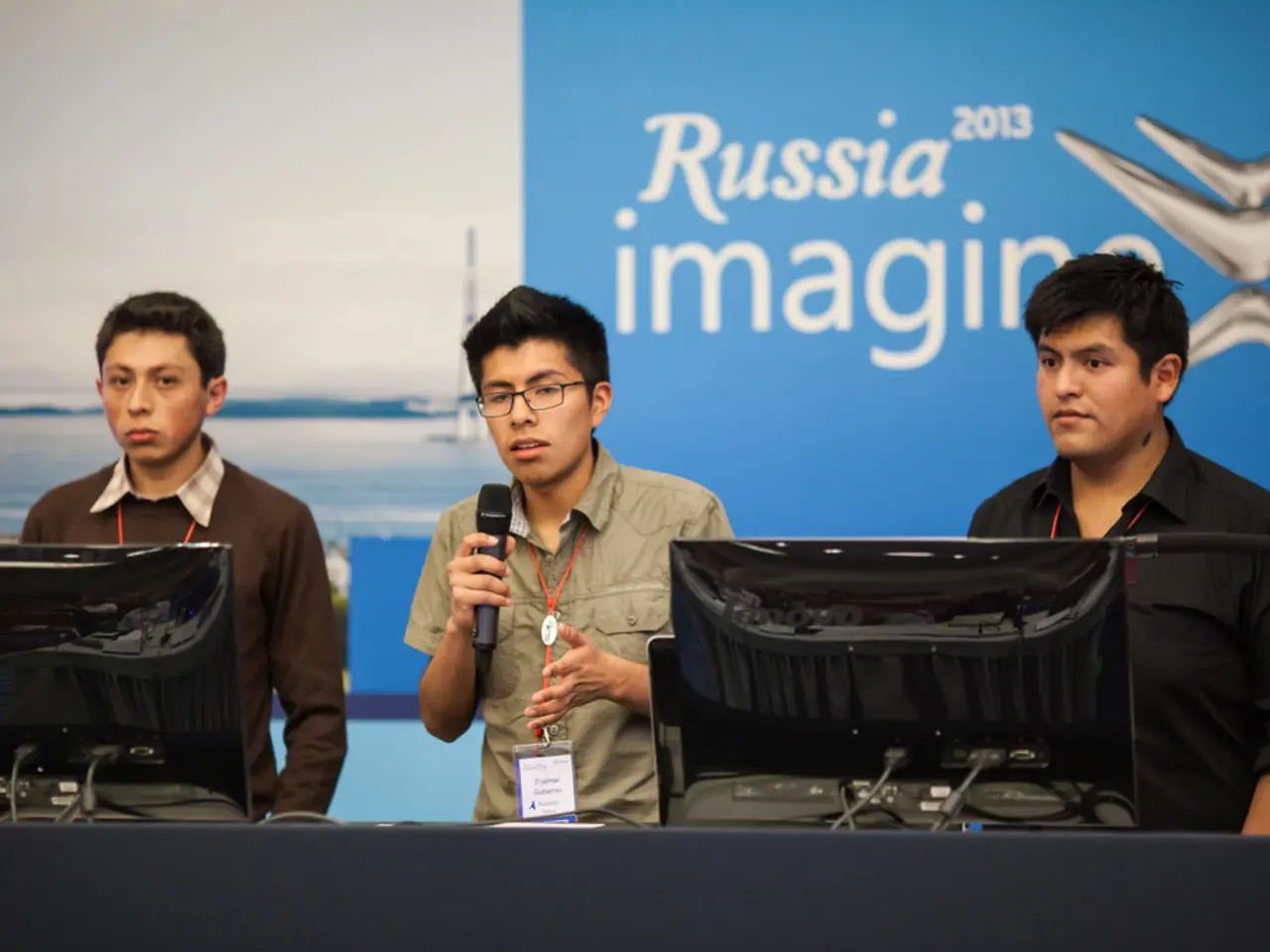Trump expresses openness towards engaging in commercial ventures with Russia; however, such a move might pose challenges
Russia, once a lucrative market for Western companies, has become a complex landscape following the war in Ukraine. The ongoing political and economic tensions present a myriad of challenges for businesses looking to re-enter the Russian market.
Last year, oil and gas revenues accounted for 30% of Russia's federal government budget, according to an analysis by The Oxford Institute for Energy Studies. However, the exodus of Western companies has resulted in fewer opportunities for new business compared to before the war. The European Union has banned all seaborne imports of Russian crude oil and whittled Moscow's share of its natural gas imports delivered via pipeline to about 11% last year, from more than 40% in 2021.
The success of Western companies returning to Russia would depend on whether Russian consumers would welcome them. Yet, the market has become saturated due to the surge in trade between Russia and China since the war. This saturation affects various sectors, including automotive.
Sanctions and legal risks present significant challenges for any company considering resuming operations in Russia. The ongoing sanctions imposed by Western countries, particularly the U.S., target key sectors such as energy and technology, and there are threats of secondary sanctions against companies that bypass these restrictions.
Infrastructure and supply chain disruptions are also concerns. The conflict has disrupted supply chains and infrastructure, which could impact the ability of Western companies to resume operations efficiently in Russia.
Russian legislation now allows for the confiscation of U.S. company assets in retaliation for seized Russian assets, creating a hostile regulatory environment. The political climate remains tense due to the ongoing war, which could lead to further economic and political retaliation between Russia and Western nations.
There is significant international pressure on companies not to support Russia's economy, which could affect public perception and lead to boycotts or negative publicity for companies choosing to resume business operations in Russia. Consumer sentiment in both Russia and Western countries could be negative towards companies that resume business with Russia, potentially affecting sales and brand reputation.
The influx of Chinese companies into the Russian market during the conflict has created a competitive landscape that Western firms must navigate upon re-entry. An example of a copy-cat brand that emerged after Starbucks exited Russia is Stars Coffee, which adopted an audaciously similar logo.
As Western companies contemplate a return to, or reinvestment in, Russia, they may ask themselves: Would it be worth it? Simply doing business in Russia has become harder since the war, with Russian banks being banned from the SWIFT messaging service. The Group of Seven nations imposed a price cap on Russian oil in 2022, designed to dent Moscow's revenues while still allowing its oil to flow to the global market.
Despite these challenges, Russia remains an attractive market for some companies due to its vast natural resources and potential for growth. The upcoming meeting between US President Donald Trump and Russian President Vladimir Putin in Alaska for potential peace talks between Russia and Ukraine could signal a thaw in relations, potentially opening up new opportunities for Western businesses. However, the path forward is uncertain, and companies must carefully weigh the risks and potential rewards before making a decision to re-enter the Russian market.
- Given the ongoing political and economic tensions, businesses aiming to re-enter the Russian market face a myriad of challenges, particularly in the energy and technology sectors, due to the ongoing sanctions imposed by Western countries.
- Last year, it was revealed that oil and gas revenues accounted for 30% of Russia's federal government budget, yet the exodus of Western companies has left fewer business opportunities compared to pre-war times.
- The market saturation due to the surge in trade between Russia and China poses a threat to various sectors, including automotive, making it challenging for Western companies to regain a foothold in Russia.
- Sanctions and legal risks are significant hurdles for companies reconsidering operations in Russia, as they navigate the threats of secondary sanctions and a hostile regulatory environment that allows for the confiscation of U.S. company assets.
- The success of Western companies in Russia would depend on whether Russian consumers welcome them and whether they can navigate the competitive landscape created by the influx of Chinese companies, exemplified by the emergence of copy-cat brands in the food and beverage industry.




